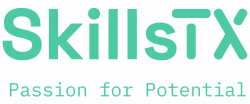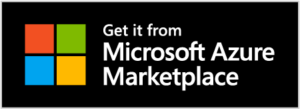Why is it that despite the clear demand from senior leaders for a standardized skills framework, most in the Americas remain oblivious to a solution that’s been around for over 20 years?
SFIA (Skills Framework for the Information Age) from the non-profit SFIA Foundation is not just a concept but a countrywide standard in Australia and New Zealand, yet it’s virtually unheard of here.
Imagine the transformation if we embraced a proven, skills-driven approach to digital talent—are we ready to catch up with the rest of the world?
In the recent podcast “Analyzing Challenges Faced by HR Leaders with Andrew Johnson,” a glaring issue emerged: the desperate need for a standardized framework like SFIA (Skills Framework for the Information Age) to bridge the communication gap across departments, geographies and languages in medium—to large-sized enterprises.
It’s high time this conversation moved from HR offices to the boardroom!
The Cry for a Common Language
HR and digital leaders struggle with an increasingly complex and fragmented digital and professional skills landscape. The lack of a unified approach to measuring and managing digital skills and competencies creates chaos. The absence of a common language and framework to define and measure digital skill proficiency leads to inefficiencies and misaligned objectives across departments.
Now, let me ask you this: Are your software architects or cybersecurity analysts equipped with the same skills regardless of their department, business unit, or location? Chances are, the answer is no. The inconsistency is staggering, and your current approach likely fails to uncover your employees’ hidden skills and competencies. It’s fundamentally flawed and needs a serious overhaul!
This isn’t just an HR issue—it’s a systemic organizational problem.
How can you ensure your team is prepared to meet organizational goals if you can’t accurately assess and manage their skills and competencies?
Not Just an HR Problem: A Board-Level Imperative
The fallout from not having a standardized skills framework affects strategic planning, project management, and operational efficiency across the board. SFIA offers a comprehensive view of professional skills that are structured to align with organizational needs. This alignment is crucial for effective communication and collaboration, ensuring everyone speaks the same language regarding skills and competencies. Ignoring this need at the board level is simply irresponsible.
Lacking the right people with the right skills in the right roles poses significant risks. If a major cybersecurity attack occurs, can you provide more than a list of certifications and experience to the FBI or auditors? SFIA offers an objective way to measure skills based on what individuals can actually “DO.” As a standard in Australia and New Zealand, an SFIA-based inventory is highly credible compared to HRIS or LMS reports.
In critical moments, a robust, skills-based inventory is not just a regulatory checkbox—it’s your best defense against emerging threats.
Are you confident your current skills inventory can withstand scrutiny in a crisis?
Strategic Alignment and Organizational Efficiency
SFIA facilitates strategic alignment by defining clear roles and responsibilities across various organizational levels. It helps map technical and professional skills to specific job roles, ensuring that employees’ competencies are utilized effectively. This mapping is essential for HR leaders in talent acquisition and retention, as it helps them clearly understand the skills required for each role and identify skill gaps within the organization.
Implementing SFIA-based skill assessments enables organizations to identify skill gaps accurately. This insight allows tailoring Learning and Development (L&D) programs to address immediate skill deficiencies while aligning with the organization’s strategic goals. By focusing on both short-term needs and long-term objectives, L&D programs can be customized to ensure that employees are equipped to handle current challenges and prepared for future advancements and innovations.
This targeted approach maximizes the impact of training investments, fostering a culture of continuous improvement and adaptability.
How are you currently aligning your L&D initiatives with your organizational goals?
DEI and Cultural Cohesion
Diversity, Equity, and Inclusion (DEI) initiatives are another area where a common framework like SFIA is indispensable. DEI efforts require precise measurement and management of skills to ensure equal opportunities for growth and development. SFIA’s structured approach to skills and competencies ensures that these initiatives are not just buzzwords but effectively implemented and measured. Without it, DEI efforts can quickly become tokenistic and ineffective.
HR leaders today are grappling with a myriad of pressing challenges. The landscape is more complex than ever, from managing hybrid workforces to meeting new generation expectations around objectivity and inclusivity.
While many large companies strongly commit to inclusivity, a closer look at their job descriptions often tells a different story.
These descriptions frequently contain outdated, biased requirements that unintentionally counteract their DEI goals.
Are your current job descriptions still relying on outdated metrics like years of experience, mandatory degrees, and costly vendor-specific certifications?
Technology Integration and Remote Work
Integrating technology in HR practices, such as AI-driven recruitment and virtual development tools, underscores the need for a standardized framework. SFIA enables organizations to leverage technology effectively by clearly understanding the required digital skills and their alignment with business objectives. This clarity is indispensable in a hybrid workforce model, where remote work and digital collaboration tools are the norm.
The scientific objectivity of SFIA is crucial in a technologically integrated and remote workforce. It offers a consistent, transparent framework for evaluating and managing diverse talents across various locations effectively.
SFIA ensures that all remote employees are assessed against the same standards, eliminating biases and aligning individual capabilities with organizational needs.
This objectivity is essential for creating cohesive, capable teams ready to meet the challenges of a digital and dispersed working environment.
How do you leverage technology to ensure consistent skill assessments and management across your remote workforce?
Preparing for Economic Challenges
With the looming threat of a recession, a strategic approach to managing resources is more crucial than ever. SFIA helps organizations by providing a framework for financial management, ensuring that investments in skills and competencies align with business objectives and deliver a measurable return on investment. Without such a framework, organizations risk wasting valuable resources on misaligned initiatives.
In my humble opinion, SFIA is the ONLY objective way to approach downsizing, layoffs, or workforce reductions.With a comprehensive inventory of your digital teams’ skills, SFIA allows you to make data-driven decisions, ensuring you retain critical organizational capabilities and knowledge. This method identifies whom to keep and facilitates succession and knowledge transfer plans, which are essential for the organization to survive and thrive post-downsizing.
Relying on SFIA’s objectivity eliminates guesswork, making the downsizing process fair, transparent, and strategically sound.
Are you prepared to make tough workforce decisions using an objective and data-driven approach?
Elevating the Conversation to the Boardroom
The need for a common language and framework for defining and measuring digital skills is not just operational but strategic. Organizations must elevate this conversation to the board level, ensuring that frameworks like SFIA are prioritized. This approach leads to better alignment of business objectives, improved efficiency, and a more cohesive organizational culture.
Ignoring the call for SFIA is not just shortsighted—it’s a disservice to the entire enterprise.
Are your job descriptions stuck in the Stone Age?
You’re not alone. It’s time to ditch dinosaur-era metrics and leap into the future with SFIA and SkillsTX Talent eXperience Skills Intelligence! Below are a few resources to get you started…
Additional Resources:
- Request access to our on-demand demo showcase to see how SkillsTX Talent eXperience Skills Intelligence makes the SFIA Framework come to life.
- Ask yourself, “How well does my organization do Digital Skills Management?” | Take our 15-minute Digital Skills Management Maturity Assessment to find out. (40+ pages of tailored strategies for transitioning to a skills-based talent strategy)
- Download the FREE SFIA Cheat Sheet
- Create your own SFIA-aligned skills inventory by taking a FREE SFIA Assessment and compare your skills against more than 600 job descriptions and roles.
- Maximize your Microsoft Enterprise Services Agreement (ESA) with SkillsTX Talent eXperience, contributing to your Microsoft Azure Consumption Commitments (MACC).
#PassionForPotential #SFIA SkillsIntelligence #TalenteXperience #WorkforceOptimization #FutureProofWorkforce #StrategicWorkforcePlanning #HRChallenges #FutureOfWork #DigitalWorkforce #DigitaHR #SkillsFramework #SkillsAssessment #DEI #InclusiveWorkforce
AUTHOR NOTE: Reproduced with thanks to John Kleist III, Chief Growth Officer for SkillsTX and author of Digital Talent Strategies, a popular newsletter on LinkedIn. John proudly considers himself a Talent Management Revolutionary: Spearheading Skills-Based Digital Talent Strategies with SkillsTX Talent eXperience Skills Intelligence and the #SFIA Framework | Unlock Your #PassionForPotential.







